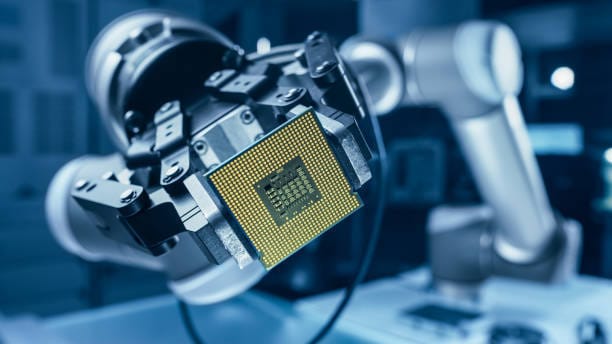- LuxAI Insights
- Posts
- Where AI is Headed in the Next 5 Years
Where AI is Headed in the Next 5 Years

AI is evolving faster than most technologies in history—and we’re only getting started. In the past few years alone, we’ve seen AI go from a novelty to a core part of business, education, healthcare, and creative industries. But what’s coming next? The next five years promise exponential growth, deeper integration into daily life, and new ethical and technological challenges. Here's where experts believe AI is headed between now and 2030—and what it means for you.
AI Becomes Invisible (But Everywhere)
In five years, AI won’t be something you “use”—it will be baked into nearly every app, device, and platform. Think AI-powered email that drafts itself, calendars that adapt to your energy levels, and search engines that give you answers, not just links.
We’ll move from active prompting to passive assistance—where AI predicts your needs and acts before you even ask. This shift toward ambient AI means tools like Siri, Alexa, and ChatGPT will feel less like interfaces and more like extensions of your thinking.
Multimodal Models Take Over
Today’s AI can generate text, images, code, and even music—but usually in separate tools. In the next few years, multimodal AI (models that understand and generate across text, image, audio, and video) will become the norm.
This means:
Creating a video from a typed prompt.
Having a single AI understand a spreadsheet, a voice memo, and a screenshot—all at once.
Tools that allow seamless transitions between media: e.g., turning meeting notes into a narrated slideshow in seconds.
The boundaries between formats will blur—and productivity will soar.
Personalized AI Assistants Become Mainstream
Your AI won’t just be an assistant—it will be your assistant. With fine-tuning and memory features, AI will remember your preferences, learn your voice, and manage more complex tasks over time. Expect:
Smart agents that handle scheduling, emails, and budgeting.
Career- or industry-specific copilots: legal, medical, creative, etc.
Voice-driven AI companions that feel more human than robotic.
By 2030, having a personal AI will be as common as having a smartphone.
Regulation, Ethics, and AI Alignment Go Front and Center
As AI becomes more powerful, ethical questions will grow louder. Over the next five years, expect:
Governments implementing AI regulations on transparency, safety, and fairness.
Companies required to disclose when content is AI-generated.
Stricter guidelines around data use, privacy, and misinformation.
At the same time, researchers will push for better AI alignment—ensuring that AI systems understand and respect human values. Safety will become as important as capability.
A Smarter, Faster, More Human-Centric Future
AI in the next five years will be less about flashy demos and more about deep, useful integration into our lives. It will help us think better, work faster, and unlock creativity in ways we’re only beginning to understand. But it will also demand responsibility—from developers, businesses, and users—to ensure that it enhances, rather than replaces, what makes us human.
Whether you're building with AI or simply using it, now is the time to pay attention. The AI revolution is only just beginning—and the next five years will define the future.
Small Budget, Big Impact: Outsmart Your Larger Competitors
Being outspent doesn't mean being outmarketed. Our latest resource showcases 15 small businesses that leveraged creativity instead of cash to achieve remarkable marketing wins against much larger competitors.
Proven techniques for standing out in crowded markets without massive budgets
Tactical approaches that turn resource constraints into competitive advantages
Real-world examples of small teams creating outsized market impact
Ready to level the playing field? Download now to discover the exact frameworks these brands used to compete and win.

